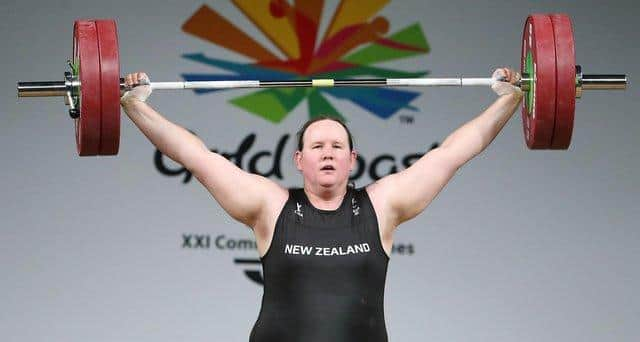Tokyo 2020: Who is Laurel Hubbard? The transgender weightlifter making Olympics history
Laurel Hubbard’s inclusion in the Tokyo 2020 games may have divided opinions in the sport world, but the weightlifter’s inclusion in the Olympics is a millstone moment for trans-athletes.
The 43-year-old athlete created a major moment in Olympic history when she became the first openly transgender athlete to compete at the games in an individual event when she took the stage for the women's super-heavyweight category on Monday August 3.
Advertisement
Hide AdAdvertisement
Hide AdWhile the International Olympic Committee (IOC) has praised the weightlifters “courage and tenacity”, her appearance at the games have sparked debate among critics with some claiming she will have an unfair advantage, some have even gone as far as saying it sets an ‘unfair precedent’ within the sport.


These claims have been shot down by the IOC, who say that any alleged risk has been exaggerated.
Who is Laurel Hubbard?
She is the first openly transgender woman to compete at the Olympics in an individual event.
Hubbard has set several national junior records under her name assigned at birth, before transitioning by beginning hormone therapy. She later confirmed she was trans in 2013, at the age of 35.
Previously, she has won a silver medal in the sport when she competed at the 2017 World Championships in London, though she won two gold medals at the 2019 Pacific Games in Samoa.
“I’m not here to change the world” she stated, after first competing as a female athlete in 2017. While she also praised the IOC for its “commitment to making sport inclusive and accessible.”
Have openly transgender athletes competed at the Olympics before?
Before Tokyo 2020? No, however, footballer Quinn – who plays for the Canadian women’s national football team – was included in their national team squad for the games and identifies as non binary.
The 25-year-old Quinn, who has 63 caps for Canada, started against Japan in their country’s opening game and has starred for their team throughout the tournament in midfield.
Advertisement
Hide AdAdvertisement
Hide AdLast year, Quinn asked people to use they/them pronouns due to their non binary gender identity. They were permitted to continue playing professional women's football on the basis of their sex as opposed to gender identity.
The Canadian footballer could become the first non-binary athlete to win a medal at the Olympics after their side shocked USA to reach the semi finals.
What do the rules say about transgender athletes competing at the Olympics?
Sadly for Hubbard, it could be the first and final time she competes at the games due to confusion surrounding the rules that have been set by the IOC.
Last week, the IOC admitted their current guidelines were not fit for purpose, with a specific ruling on testosterone levels causing confusion for competitors and spectators alike.
Previously, the IOC have permitted the inclusion of transgender athletes to compete within their assigned gender when they set these rules back in 2004.
However, in 2014, the governing body changed this slightly by saying those that have transitioned from male to female can compete in women's sport if they have identified as female for at least four years, though there was a stipulation that testosterone levels must remain below 10 nanomoles per litre for a year.
Hubbard is able to compete at the Tokyo games due to meeting the international weightlifting guidelines which dictate she only needs enough medication to lower her testosterone to below 10 nanomoles per litre. These guidelines were set in 2015.
However, the current guidelines have been called into question by multiple critics, including by sports scientist Ross Tucker. He states certain physiological changes are irreversible after puberty.
A message from the Editor:
Thank you for reading this article. We're more reliant on your support than ever as the shift in consumer habits brought about by coronavirus impacts our advertisers.
If you haven't already, please consider supporting our trusted, fact-checked journalism by taking out a digital subscription.
Comments
Want to join the conversation? Please or to comment on this article.